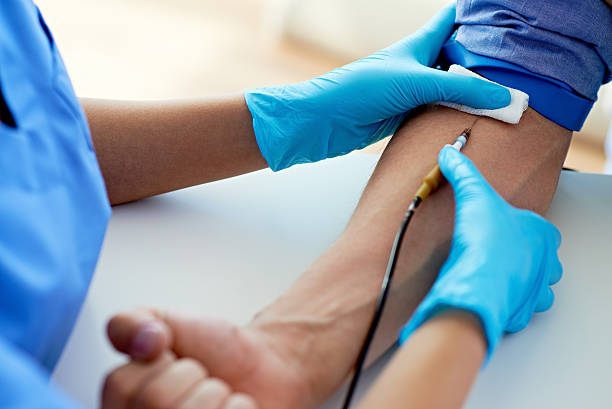Get Paid to Donate Blood: A Comprehensive Guide
Introduction
Blood donation is a vital component of the healthcare system, providing essential resources for surgeries, cancer treatment, chronic illnesses, and traumatic injuries. While the altruistic act of donating blood is often emphasized, many people are unaware that you can also get paid to donate blood. This comprehensive guide will explore the process, benefits, and considerations involved in donating blood for compensation.
The Importance of Blood Donation
Blood is a critical resource that cannot be manufactured. It must be collected from healthy donors to meet the medical needs of patients. Blood donations are used in various medical procedures, including surgeries, trauma care, cancer treatment, and care for chronic illnesses. The demand for blood is constant, making regular donations essential for maintaining an adequate supply.
Types of Blood Donations
There are several types of blood donations, each serving different medical purposes:
- Whole Blood Donation: This is the most common type of donation, where approximately one pint of blood is collected. It is typically used in emergency situations and surgeries.
- Plasma Donation: Plasma is the liquid portion of blood that contains proteins and antibodies. It is used to treat patients with clotting disorders and immune deficiencies.
- Platelet Donation: Platelets are essential for blood clotting and are often needed by cancer patients undergoing chemotherapy. Platelet donations involve collecting only the platelets from your blood and returning the rest to your body.
- Double Red Cell Donation: This involves donating two units of red blood cells while the plasma and platelets are returned to the donor. It is particularly beneficial for trauma patients and those with severe anemia.
How to Get Paid for Donating Blood
Getting paid for donating blood typically involves donating plasma rather than whole blood. Plasma donation centers across the United States offer compensation for each donation. Here’s how you can get started:
- Find a Plasma Donation Center: Search for reputable plasma donation centers in your area. Companies like CSL Plasma, BioLife Plasma Services, and Octapharma Plasma have numerous locations nationwide.
- Eligibility Requirements: Ensure you meet the eligibility requirements for plasma donation. These generally include being at least 18 years old, weighing at least 110 pounds, and being in good overall health.
- Initial Screening: Your first visit will involve a thorough screening process. This includes a medical history questionnaire, a physical examination, and a blood test to ensure you are a suitable donor.
- Donation Process: The plasma donation process typically takes about 90 minutes. Blood is drawn from your arm, the plasma is separated, and the remaining components are returned to your body.
- Compensation: Compensation varies by center and location, but you can expect to earn between $20 to $50 per donation. Many centers offer additional incentives for new donors or frequent donations.
Benefits of Donating Blood for Compensation
While financial compensation is a significant benefit, there are other advantages to donating blood:
- Health Benefits: Regular blood donation can help reduce iron levels in the blood, which may lower the risk of heart disease. It also promotes the production of new blood cells, contributing to overall health.
- Community Contribution: By donating blood, you are making a valuable contribution to your community’s healthcare system. Your donation can save lives and improve the health of patients in need.
- Personal Satisfaction: Many donors find personal satisfaction in knowing they are helping others. The act of donating blood can be a fulfilling and rewarding experience.
Considerations and Risks
While donating blood for compensation has its benefits, there are also considerations and potential risks to keep in mind:
- Health Screening: Ensure you undergo a thorough health screening before donating. Some conditions, such as infections or low hemoglobin levels, may disqualify you from donating.
- Side Effects: Some donors may experience mild side effects, such as dizziness, fatigue, or bruising at the injection site. These are usually temporary and can be managed by following the donation center’s guidelines.
- Frequency of Donations: Plasma donation centers typically allow donations twice a week, with at least 48 hours between donations. It’s important to adhere to this schedule to avoid over-donation, which can lead to health issues.
The Ethics of Paid Blood Donation
The ethics of paid blood donation can be a topic of debate. While compensation can incentivize donations and help maintain a stable blood supply, it also raises concerns about exploitation and the quality of donations. It’s essential to choose reputable donation centers that prioritize donor health and safety.
Conclusion
Donating blood for compensation is a beneficial practice for both donors and recipients. It provides an opportunity to earn extra income while contributing to the healthcare system. By understanding the process, benefits, and considerations, you can make an informed decision about whether paid blood donation is right for you.
Final Thoughts
Blood donation, whether for altruistic reasons or compensation, is a noble act that can make a significant difference in the lives of others. If you choose to donate for compensation, ensure you do so safely and responsibly. With the right approach, you can enjoy the financial benefits while knowing you are helping save lives.




